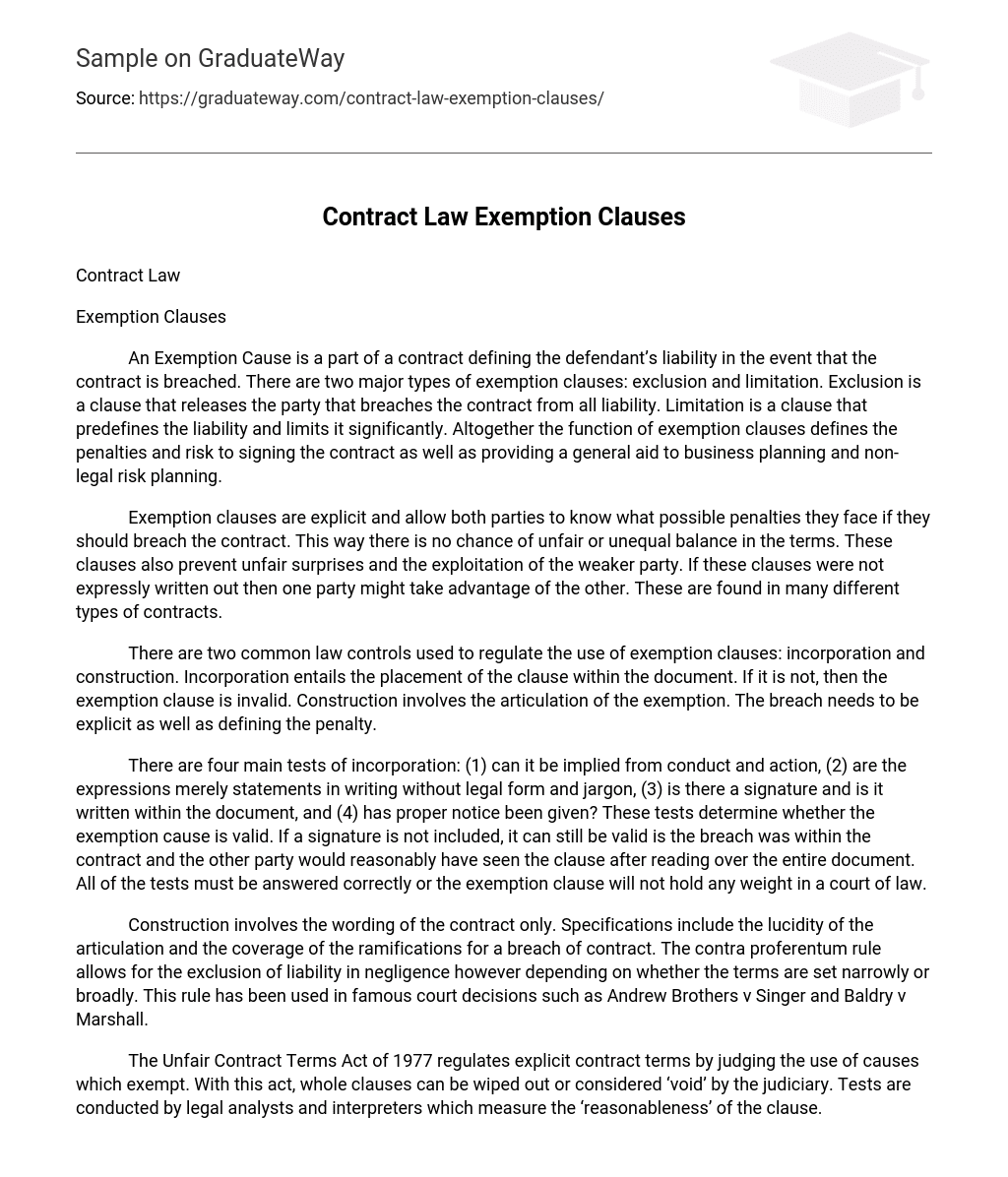Contract Law
Exemption Clauses
An Exemption Cause is a part of a contract defining the defendant’s liability in the event that the contract is breached. There are two major types of exemption clauses: exclusion and limitation. Exclusion is a clause that releases the party that breaches the contract from all liability. Limitation is a clause that predefines the liability and limits it significantly. Altogether the function of exemption clauses defines the penalties and risk to signing the contract as well as providing a general aid to business planning and non-legal risk planning.
Exemption clauses are explicit and allow both parties to know what possible penalties they face if they should breach the contract. This way there is no chance of unfair or unequal balance in the terms. These clauses also prevent unfair surprises and the exploitation of the weaker party. If these clauses were not expressly written out then one party might take advantage of the other. These are found in many different types of contracts.
There are two common law controls used to regulate the use of exemption clauses: incorporation and construction. Incorporation entails the placement of the clause within the document. If it is not, then the exemption clause is invalid. Construction involves the articulation of the exemption. The breach needs to be explicit as well as defining the penalty.
There are four main tests of incorporation: (1) can it be implied from conduct and action, (2) are the expressions merely statements in writing without legal form and jargon, (3) is there a signature and is it written within the document, and (4) has proper notice been given? These tests determine whether the exemption cause is valid. If a signature is not included, it can still be valid is the breach was within the contract and the other party would reasonably have seen the clause after reading over the entire document. All of the tests must be answered correctly or the exemption clause will not hold any weight in a court of law.
Construction involves the wording of the contract only. Specifications include the lucidity of the articulation and the coverage of the ramifications for a breach of contract. The contra proferentum rule allows for the exclusion of liability in negligence however depending on whether the terms are set narrowly or broadly. This rule has been used in famous court decisions such as Andrew Brothers v Singer and Baldry v Marshall.
The Unfair Contract Terms Act of 1977 regulates explicit contract terms by judging the use of causes which exempt. With this act, whole clauses can be wiped out or considered ‘void’ by the judiciary. Tests are conducted by legal analysts and interpreters which measure the ‘reasonableness’ of the clause.





